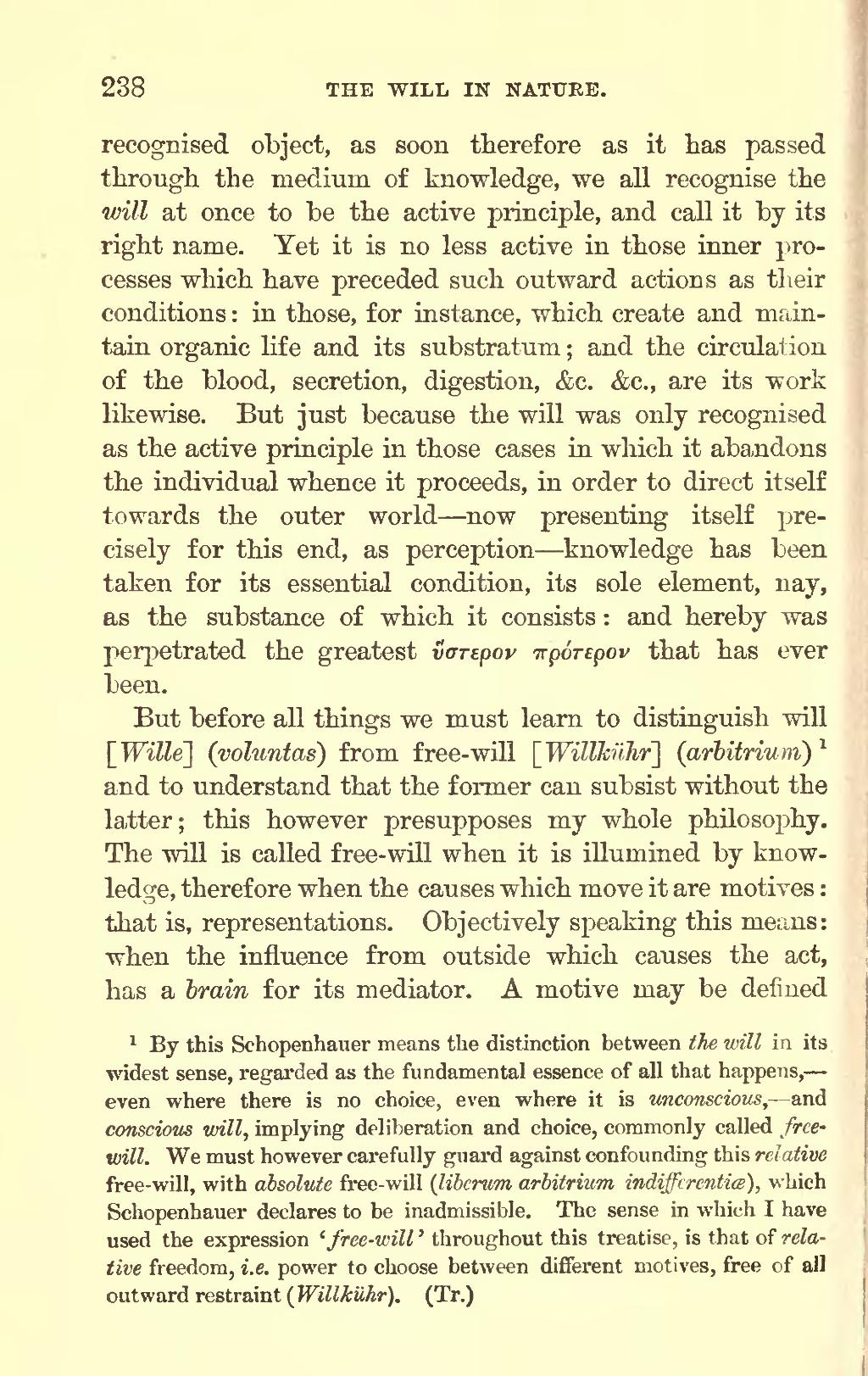238 THE WILL IN NATURE.
recognised object, as soon therefore as it has passed through the medium of knowledge, we all recognise the will at once to be the active principle, and call it by its right name. Yet it is no less active in those inner processes which have preceded such outward actions as their conditions in those, for instance, which create and maintain organic life and its substratum; and the circulation of the blood, secretion, digestion, &c. &c., are its work likewise. But just because the will was only recognised as the active principle in those cases in which it abandons the individual whence it proceeds, in order to direct itself towards the outer world now presenting itself as perception precisely for this end, knowledge has been taken for its essential condition, its sole element, nay, as the substance of which it consists: and hereby was perpetrated the greatest ύστερον προτερον (hysteron proteron) that has ever been.
But before all things we must learn to distinguish will [Wille] (voluntas) from free-will [Willkür] (arbitrium) 1 and to understand that the former can subsist without the latter; this however presupposes my whole philosophy. The will is called free-will when it is illumined by knowledge, therefore when the causes which move it are motives: that is, representations. Objectively speaking this means: when the influence from outside which causes the act, has a brain for its mediator. A motive may be defined
1 By this Schopenhauer means the distinction between the will in its widest sense, regarded as the fundamental essence of all that happens, even where there is no choice, even where it is unconscious, and conscious will, implying deliberation and choice, commonly called free will. We must however carefully guard against confounding this relative free-will, with absolute free-will (liberum arbitrium indifferentiae), which Schopenhauer declares to be inadmissible. The sense in which I have used the expression free-will throughout this treatise, is that of relative freedom, i.e. power to choose between different motives, free of all outward restraint (Willkür). (Tr.)
